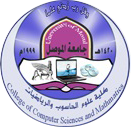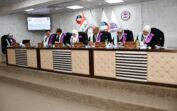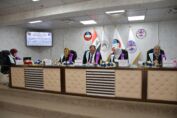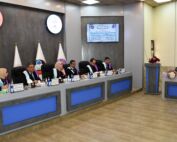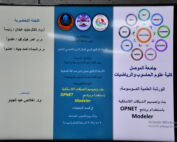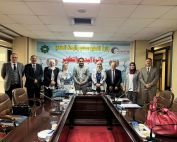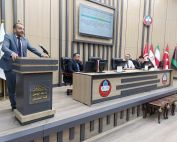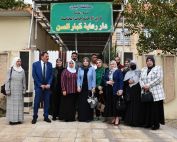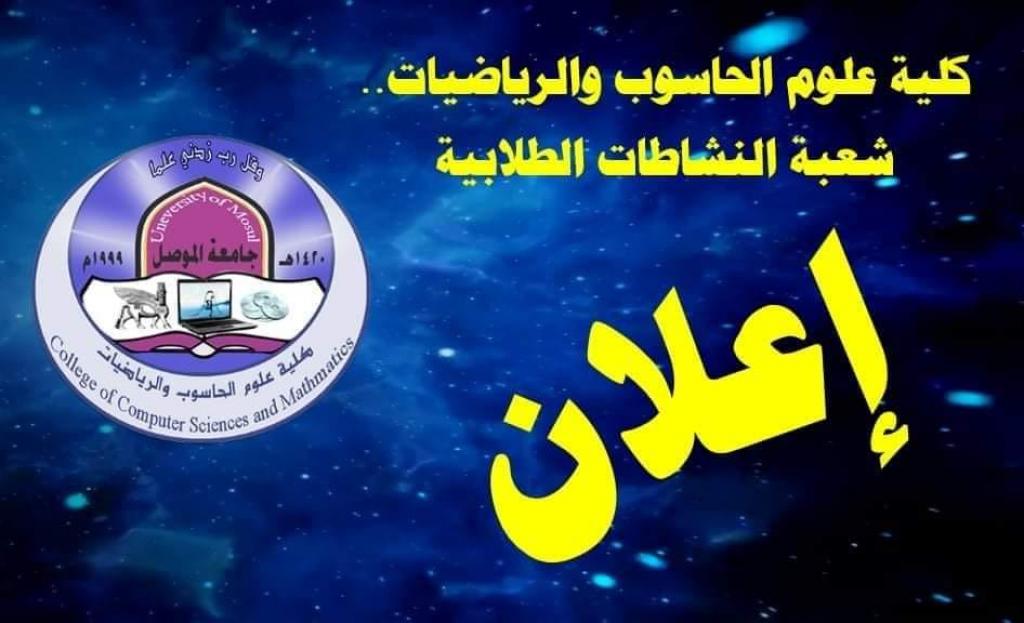28 April، 2024
(Improving the machine learning algorithm to measure the quality of software) Student: Zakaria Abdel Wahed Hamid
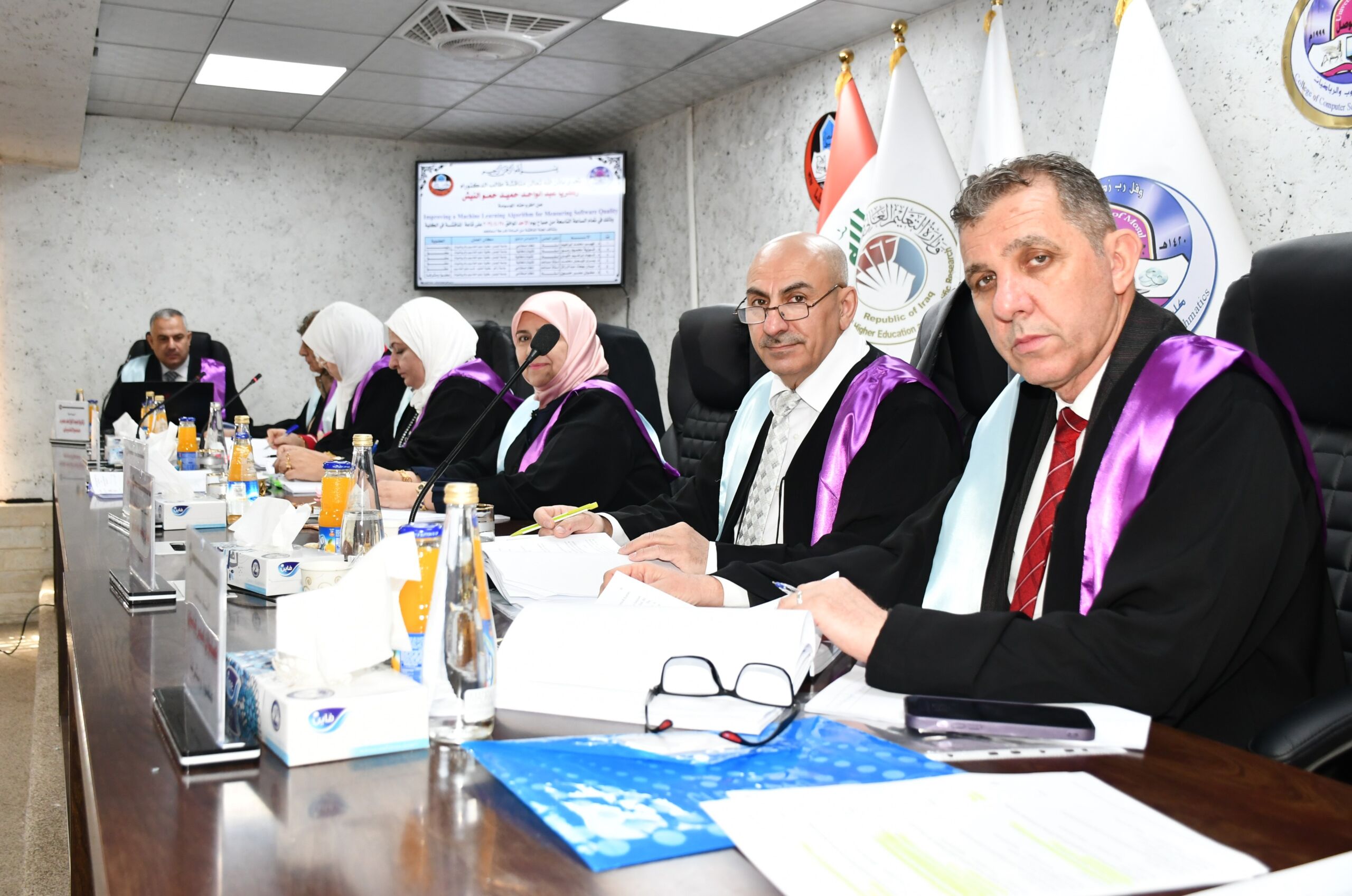
Discussion of the PhD thesis of Computer Science in the College of Computer Science and Mathematics – Department of Computer Science entitled
(Improving the machine learning algorithm to measure the quality of software)
In continuation of the scientific research movement and the follow-up and presence of the Dean of the College of Computer Science and Mathematics
Prof. Dr. Duha Bashir Abdullah
As it was discussed in the discussion hall at the College of Computer Science and Mathematics at the University of Mosul on Sunday, 28/4/2024
PhD thesis tagged (optimization of machine learning algorithm to measure software quality)
Student: Zakaria Abdel Wahed Hamid under the supervision of Prof. Dr. Safwan Omar Hassoun
The thesis presented by the student (Zakaria Abdel Wahed Hamid) dealt with the improvement of machine learning algorithms that can measure the quality of software based on the prediction of software defects. Two types of SDP models based on machine learning optimization were proposed to address the problems facing SDP models for high predictive performance. The first type involves proposing a binary hybrid whale optimization algorithm (BWOA) based on tapered shape transfer functions to solve feature selection and dimension reduction problems where a new model has been proposed to predict software defects. The values of the real vector representing the single coding were converted to binary vector using the four types of tapering-shaped transport functions to enhance BWOA performance and reduce the dimensions of the search space. For the first time, the KNN classifier relied on the proposed T-BWOA to verify the efficiency of the proposed SDP model. After that, three standard classifiers, namely Naive Bias (NB), Decision Tree (DT), and Random Forest (RF), were applied to T-BWOA instead of KNN for the same purpose. The second type involves hybridization of the synthetic rabbit algorithm (ARO) with the random vector functional correlation modified neural network (MRVFL) based on two approaches. The first approach is based on the use of the Single Target Algorithm (SARO) for neural network training (MRVFL), while the second method for neural network training (MRVFL) was also used, relying on the use of a multi-objective algorithm (MARO). For the SARO-MRVFL model, the fitness value is represented by one goal only; for the MARO-MRVFL model, the fitness value is represented by three goals. The performance of the proposed models was evaluated using ten standard datasets to predict software defects from NASA warehouses. Each dataset has a different number of features and styles. Seven evaluation scales were also used to assess the effectiveness of the proposed models. Experimental results showed that T2-BWOA-KNN performance produced promising results compared to other methods including ten methods from the literature. In addition, the performance of the NB, DT, and RF classifiers on (T-BWOA) was acceptable with slight differences between them. Moreover, the MARO-MRVFL model has superior performance compared to other proposed models and other modern methods with an accuracy rate (90.15%) and an AUC rate (86.43%) which shows excellent performance. Furthermore, statistical analysis using the Kendall W test and the Paired samples t-test confirms the importance of the proposed MARO-MRVFL model compared to other alternative SDP models.
The discussion committee was chaired by Prof. Dr. Lahib Muhammad Ibrahim and the membership of each of
Prof. Fawzia Mahmoud Remo Member
Prof. Shahba Ibrahim Khalil Member
Assoc. Prof. Yousra Faisal Mohammed Member
Assoc. Prof. Maywan Bahgat Abdul Razzaq Member
Prof. Safwan Omar Hassoun Member and Supervisor
